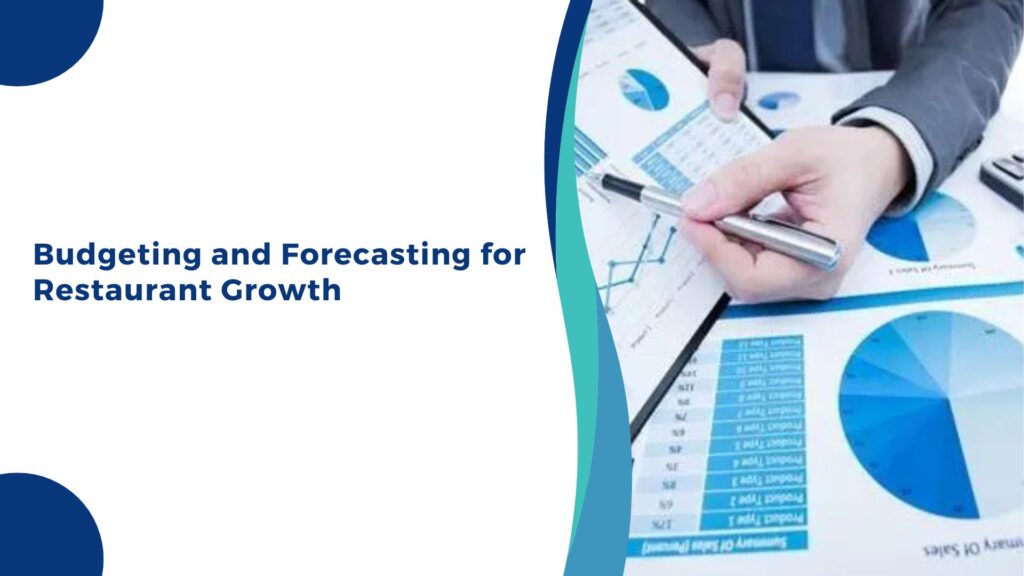Budgeting and Forecasting for Restaurant Growth
Excellent food and service are only one aspect of running a successful restaurant; another is having a solid understanding of financial management. For restaurants to grow profitably and steer clear of financial hazards, forecasting and budgeting are essential. By using expert bookkeeping services, restaurateurs may streamline these procedures and make well-informed choices. The significance of forecasting and budgeting, how to apply them successfully, and the role bookkeeping services can play will all be covered in this tutorial.
Why Budgeting and Forecasting Are Crucial for Restaurant Growth
By laying out anticipated income and expenses for a given time frame, budgeting creates a financial road map. This is enhanced by forecasting, which makes predictions about future financial trends based on past data and current market conditions. These resources work together to benefit restaurants:
- Allocate resources efficiently.
- Plan for seasonal fluctuations in revenue.
- Set achievable financial goals.
- Prepare for unexpected challenges.
Utilizing professional bookkeeping services ensures accurate financial records, making budgeting and forecasting more reliable and actionable.
Key Components of Budgeting for Restaurants
The basis for financial success is a well-organized budget. The following are the crucial factors to take into account:
1. Revenue Projections
Calculate your restaurant’s earnings using past sales information, industry trends, and marketing initiatives. To find areas for expansion, divide revenue into segments like dine-in, takeout, and catering.
2. Fixed and Variable Costs
- Rent, utilities, and insurance are examples of fixed costs. Regardless of the volume of sales, they stay the same.
- Variable Costs: Depending on business activity, marketing, labor, and ingredient costs change. For profitability, it is essential to estimate these expenses accurately.
3. Profit Margins
Subtract the cost of goods sold (COGS) from total revenue to find your gross profit margin. After deducting operational costs, strive for a high net profit margin.
4. Cash Flow Management
Track cash inflows and outflows to avoid shortages. Bookkeeping services can provide real-time updates on your cash flow, helping you maintain liquidity during slow periods.
Steps for Effective Forecasting
Making proactive decisions is made possible by forecasting, which offers a forward-looking viewpoint. To produce precise financial estimates, take the following actions:
1. Analyze Historical Data
Examine historical spending and sales data to find trends. For example, a lot of restaurants make more money on weekends or holidays.
2. Incorporate Market Trends
Stay informed about industry trends, such as changes in consumer preferences, local competition, and economic conditions. These insights refine your forecasts.
3. Use Technology
Use technologies such as point-of-sale (POS) systems and accounting software to gather and examine data. The forecasting process is made simpler by the integration of numerous bookkeeping services with these platforms.
4. Adjust for Seasonality
Take into consideration how foot traffic and sales are impacted by seasonal fluctuations. Aim for lower staffing during slow months and increased inventory requirements during peak times.
How Bookkeeping Services Enhance Budgeting and Forecasting
For restaurants, bookkeeping services are essential to simplifying financial management. How they can assist is as follows:
1. Accurate Financial Records
Professional bookkeepers ensure your financial records are accurate and up-to-date, providing a reliable foundation for budgeting and forecasting.
2. Expense Tracking
Bookkeeping services categorize and monitor expenses, helping you identify areas where costs can be reduced without compromising quality.
3. Tax Preparation and Compliance
Staying compliant with tax regulations is crucial for avoiding penalties. Bookkeepers assist in organizing financial data for timely and accurate tax filings.
4. Customizable Reports
Obtain comprehensive financial reports that are suited to the requirements of your restaurant. To help with better decision-making, these reports show key performance indicators (KPIs), such as labor cost percentages or revenue per table.
5. Time Savings
By outsourcing bookkeeping, you can avoid becoming weighed down by administrative duties and instead concentrate on expanding your company.
Tips for Creating a Growth-Oriented Financial Strategy
- Set Realistic Goals: Base your budget and forecasts on achievable targets, considering market conditions and historical performance.
- Review Regularly: Periodically revisit your budget and forecasts to account for changes in the business environment.
- Involve Your Team: Engage managers and staff in financial planning to align everyone with your growth objectives.
- Invest in Training: Educate your team on cost control and efficient resource utilization.
Conclusion
Forecasting and budgeting are essential for promoting restaurant expansion and guaranteeing financial stability. Restaurant owners may simplify financial administration, cut down on mistakes, and concentrate on providing outstanding dining experiences by utilizing expert bookkeeping services. Your restaurant will be in a strong position to meet its long-term objectives if you have precise budgeting and perspective projections.
FAQs
- Why is budgeting important for restaurants? Budgeting helps restaurants plan their finances, allocate resources effectively, and set achievable goals, ensuring long-term profitability.
- How can forecasting benefit my restaurant business? Forecasting enables you to predict future financial trends, plan for seasonal fluctuations, and make proactive decisions to avoid potential issues.
- What role do bookkeeping services play in financial management? Bookkeeping services ensure accurate financial records, streamline expense tracking, and simplify tax compliance, making budgeting and forecasting more effective.
- What tools can help with restaurant budgeting and forecasting? Accounting software, POS systems, and inventory management tools are essential for collecting and analyzing data to create accurate budgets and forecasts.
- How often should I update my budget and forecasts? Review and update your budget and forecasts monthly or quarterly to reflect changes in market conditions, sales trends, and operational needs.





